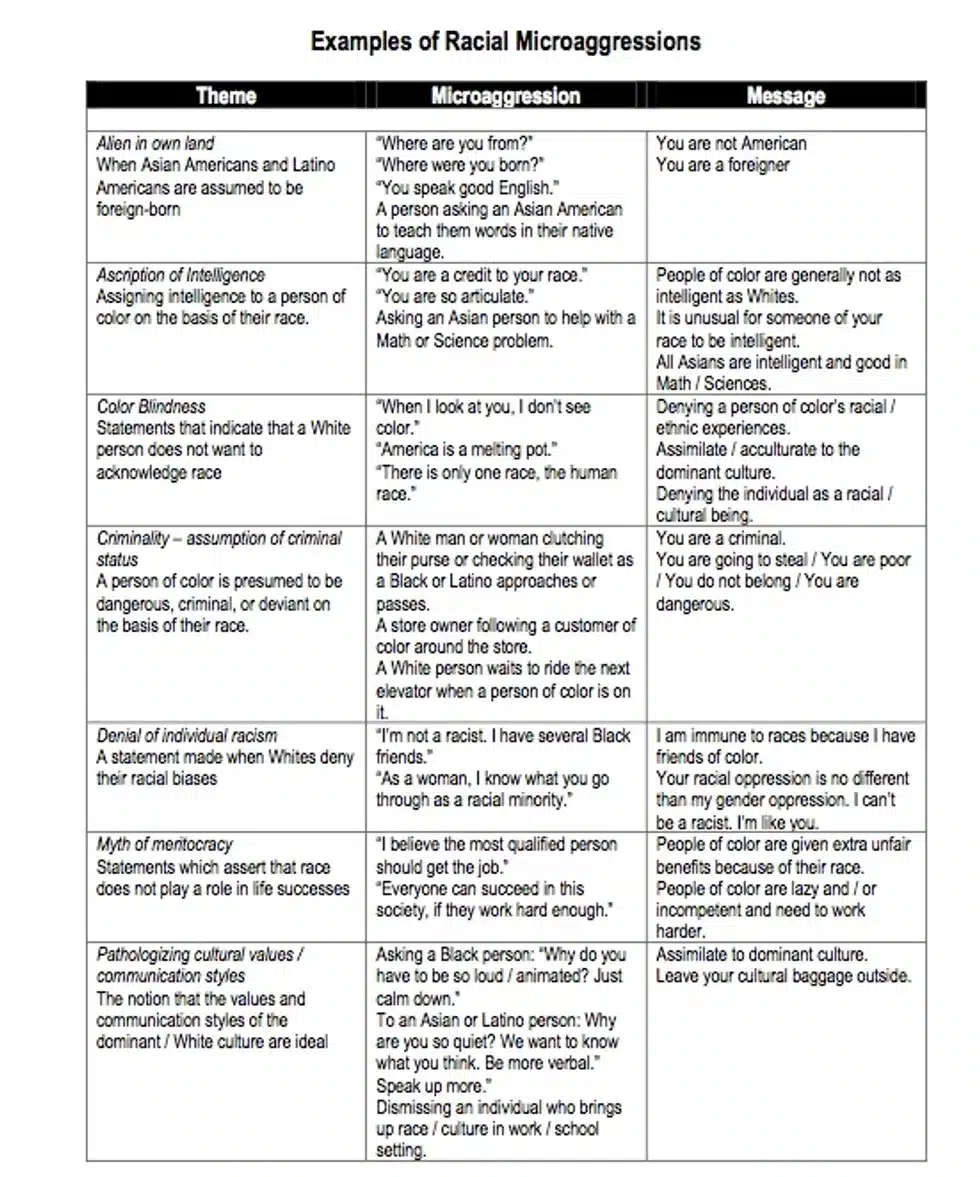
In a “Thank you, Captain Obvious” moment, a university study has found that microaggression training doesn’t work as intended.
For those not up to speed on the trendiest new species of intellectual degradation, a microaggression (silly term) is a usually normal comment that’s often meant to be complimentary, but which is perceived by an indoctrinated listener as reflecting implicit bias toward a “marginalized community,” as writer Michele Barnwell, who really does write very well, puts it.
An example is, “Everyone can succeed in this society, if they work hard enough” (seriously), according to “social scientists.” Then there’s the macro version of microaggressions. Example:
“I mean, you got the first mainstream African-American who is articulate and bright and clean and a nice-looking guy” — president-suspect Joe Biden talking about Barack Obama in 2007.
(I do take exception to China Joe’s comment: Obama is not articulate.)
As for the study, Campus Reform reports:
University of Kansas professors Zak Foste and Jennifer Ng interviewed resident assistants at two universities to determine the efficacy of microaggression training, according to the school.
The researchers explained that instead of addressing the need for “better understanding the racial, cultural and gender contexts of higher education and society overall,” microaggression training caused RAs to view microaggressions “as simple errors in communication, committed unconsciously because of ignorance, and easily fixed by people not repeating the same sentiments in the future,” according to the university’s summary of the study and the professors’ comments.
Ng explained that RAs understood the concept to only be about “external presentation.” Rather than consider alleged racism or bigotry indicated by microaggressions, RAs simply take precautions to mind their behavior around people who are different from themselves.
“Microaggressions seem to have become a catch-all label for anything that causes offense, and without more thoughtful engagement and ongoing education, the application of this term can cause confusion as well as prevent deeper understanding,” said Ng.
Foste expressed disappointment that microaggression training produced “little in the way of understanding how our language and interpretive frames are steeped in histories of racism and white supremacy.”
Translation: The social engineering just isn’t effective enough, comrade.
{modulepos inner_text_ad}
For some examples of microaggressions, take a look at the chart below, which in 2015 was on the University of Wisconsin, Steven Point’s website (hat tip: the Blaze). Foste and Ng are, apparently, disappointed that indoctrination subjects only learn via microaggression training not to utter the comments in the middle column and don’t absorb the leftist ideology in the right-hand column.

Or, as the University of Kansas wrote at its website, “RAs and many of the supervisors who trained them conveyed a particular logic that once people realize what a microaggression is, they should self-correct to avoid being perceived by others as racist.”
“‘The problem of just focusing on one’s external presentation, though,’ Foste said, ‘is that it allows individuals to write microaggressions off as anomalies in communication instead of a reflection of racist ideas with long histories,” the site continued.
Actually, the problem is that moderns, the academic variety in particular, don’t properly consider the difference between objective vs. subjective conceptions of morality (or Truth vs. personal “values”) — mainly because they don’t believe in objective morality.
For the record, “objective” here refers to absolutes existing apart from man, things that anyone can perceive; “subjective” refers to something dependent on a subject for its existence or properties. For example, the principles that murder, theft, and rape are wrong are objective (as those not awash in moral relativism well understand) and can be perceived by anyone.
In contrast, “microaggressions” are often in the nature of hang-ups, uncharitable interpretations of others’ actions, or even are an effort to justify bad behavior. They’re also too often subjective and relative.
And as with all subjective and relative things, it’s folly making them the stuff of rules, speech codes, and laws. Many today will want a behavior or term prohibited based on the notion that it’s “offensive.” Not only can “offense not be given, only taken,” however, but most everyone is offended by something and most everything offends someone. So whose hurt “feelings” will become our arbiter of an ever-morphing standard of faux right and wrong?
The answer is that feelings get pandered to insofar as they belong to the politically favored and/or they advance power-seekers’ agenda. At the end of the day, though, our relativism-reflecting, emotion-governed rules are a bit like prohibiting calling anyone “Bob” because a couple of Roberts don’t like the nickname (I met a couple such Roberts).
A sane society restricts its rules, social codes, and laws to violations of the objective (e.g., “Thou shalt do no murder). Focusing the subjective — things that bother us individually — and expecting others to endlessly bend to our wants is also remarkably self-centered. It’s a bit like a dinner guest demanding that seating arrangements be completely altered in deference to his hang-ups. Such people need to be told to grow not only up, but also a thicker skin.
If you’re focusing on what bothers you down to the micro, perhaps it’s time to consider that you’re small-minded.


